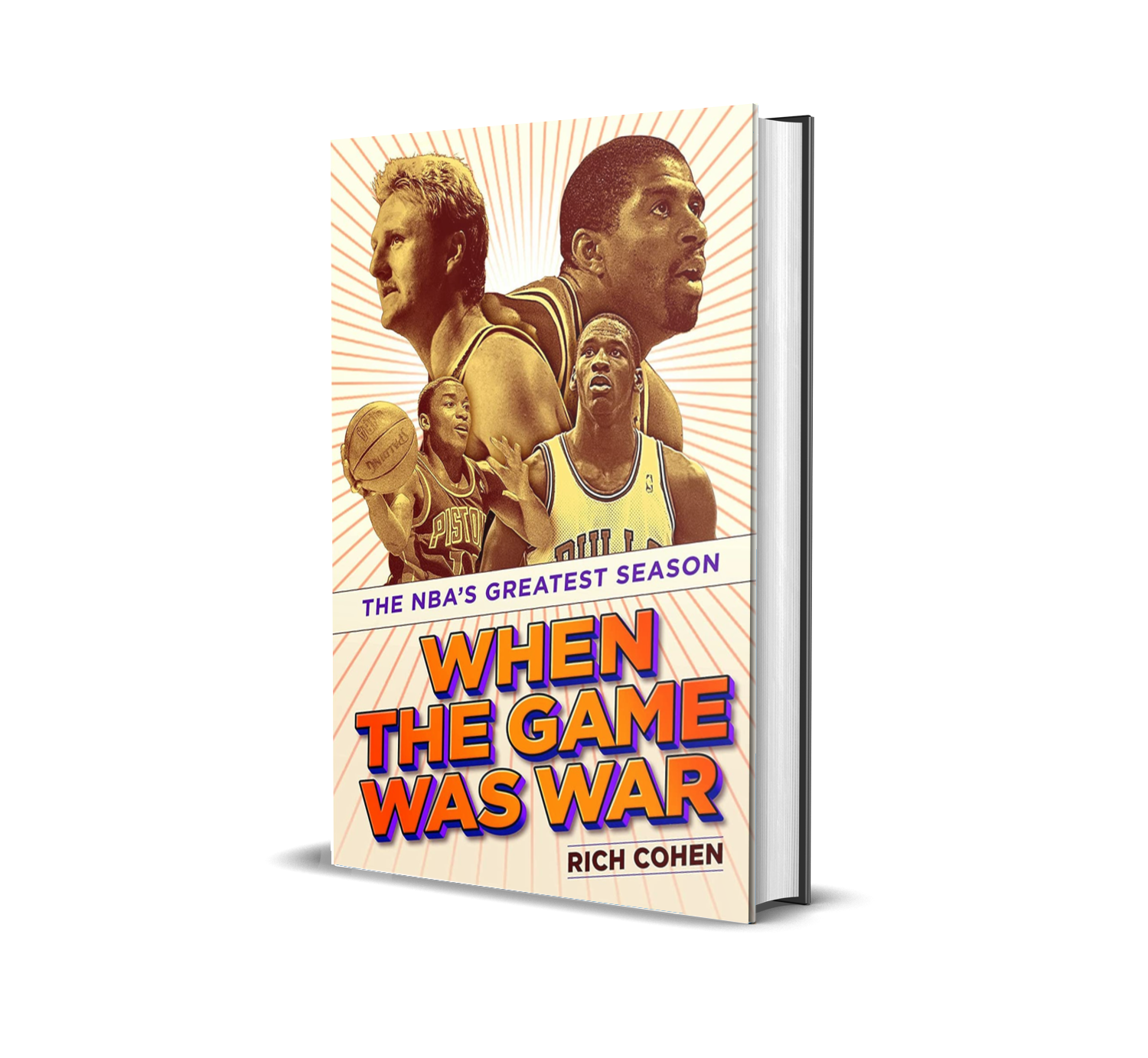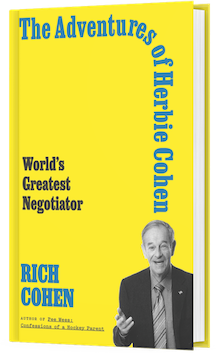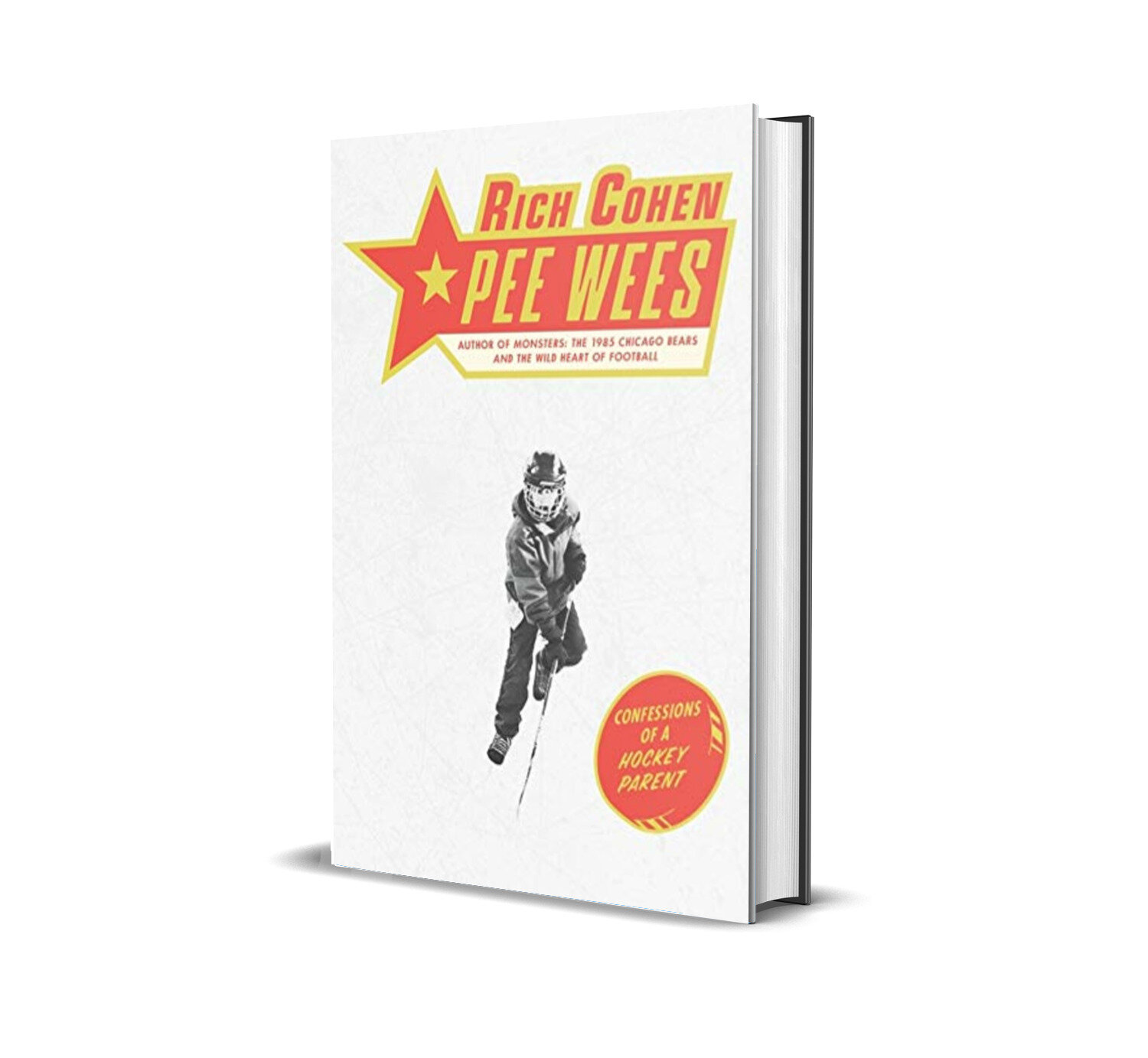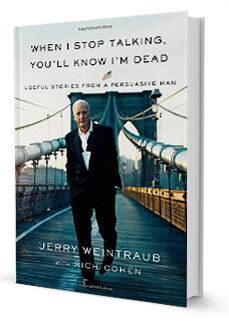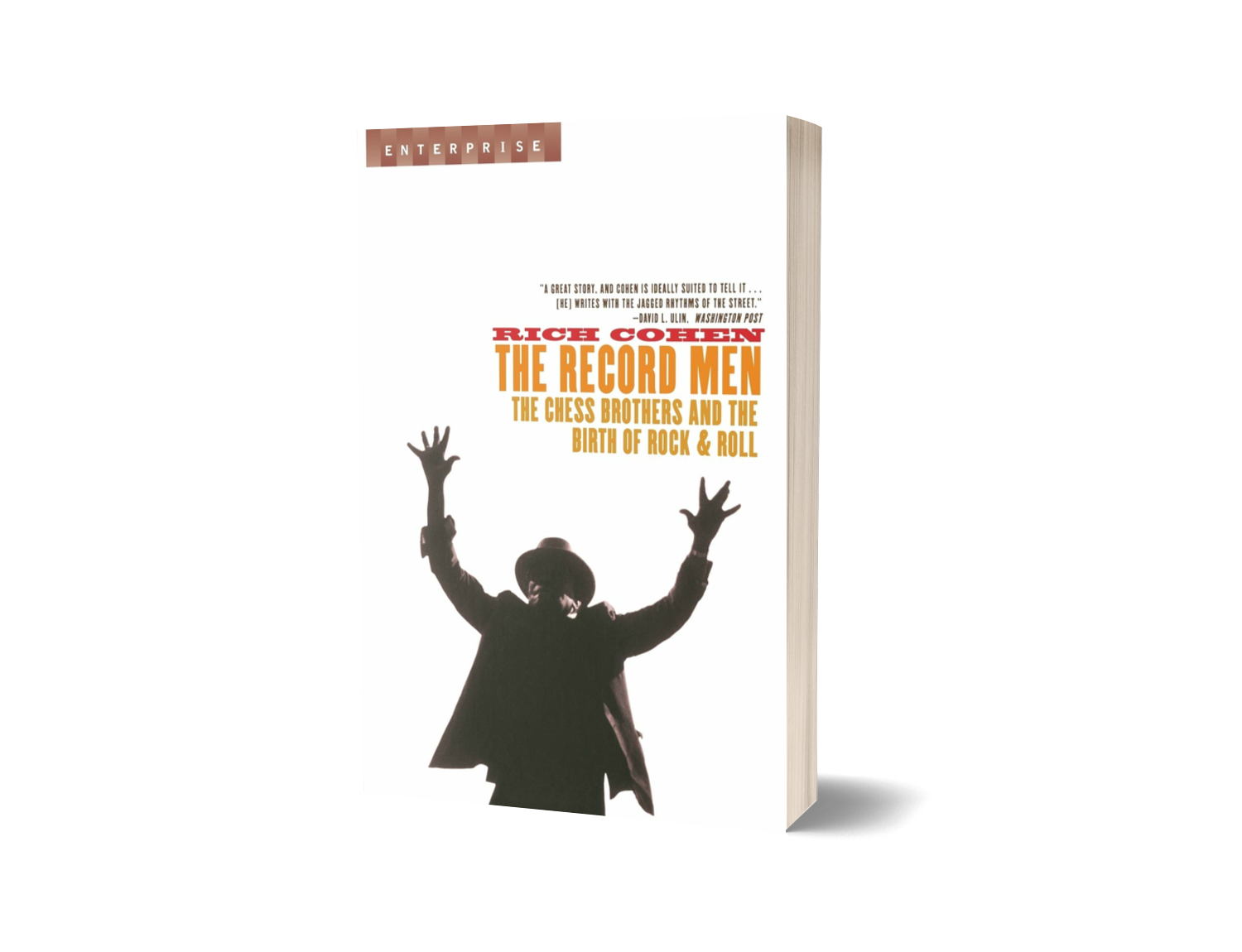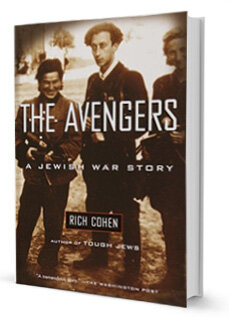Books
When The Game Was War: The NBA's Greatest Season
The gritty, no-holds-barred account of the 1987 NBA season, a thrilling year of fierce battles and off-the-court drama between Magic Johnson, Larry Bird, Isiah Thomas, and Michael Jordan—from New York Times bestselling author Rich Cohen.
Four historic teams. Four legendary players. One unforgettable season.
The 1980s were a transformative decade for the NBA. Since its founding in 1946, the league had evolved from a bruising, earthbound game of mostly nameless, underpaid players to one in which athletes became household names for their thrilling, physics-defying play. The 1987–88 season was the peak of that golden era, a year of incredible drama that featured a pantheon of superstars in their prime—the most future Hall of Famers competing at one time in any given season—battling for the title, and for their respective legacies.
In When the Game Was War, bestselling author Rich Cohen tells the story of this incredible season through the four teams, and the four players, who dominated it: Larry Bird and the Boston Celtics, Magic Johnson and the Los Angeles Lakers, Isiah Thomas and the Detroit Pistons, and a young Michael Jordan and his Chicago Bulls. From rural Indiana to the South Side of Chicago, suburban North Carolina to rust-belt Michigan, Cohen explores the diverse journeys each of these iconic players took before arriving on the big stage. Drawing from dozens of interviews with NBA insiders, Cohen brings to vivid life some of the most colorful characters of the era—like Bill Laimbeer, Kareem Abdul-Jabbar, Danny Ainge, and Charles Oakley—who fought like hell to help these stars succeed.
For anyone who longs to understand how the NBA came to be the cultural juggernaut it is today—and to relive the magic and turmoil of those pivotal years—When the Game Was War brilliantly recasts one unforgettable season and the four transcendent players who were at the center of it all.
The Adventures of Herbie Cohen: World's Greatest Negotiator
The New York Times bestselling author Rich Cohen tells the story of Herbie: the king of Bensonhurst, the world’s best negotiator―and Cohen’s wise, wisecracking father.
Meet Herbie. The World’s Greatest Negotiator, deal maker, and chance taker, Brooklyn-born Jewish Buddha, adviser to presidents and corporations, arms and hostage negotiator, lesson giver and justice seeker, author of the how-to classic You Can Negotiate Anything, and, of course, Rich Cohen’s father.
This book is the story of a singular man. It follows Herbie from his youth, running around Brooklyn with pals Sandy Koufax, Larry King, Who Ha, and Ben the Worrier (his Bensonhurst gang “the Warriors”), to his days in the army, coaching basketball across Europe, to the years he spent crossing the country giving lectures, doing deals, and teasing out every trick in the book for getting by and for finding meaning in this strange and funny life.
The Adventures of Herbie Cohen is an ode to a remarkable man from his son and a treasure trove of homegrown wisdom and unbelievable antics. It is bildungsroman, a collection of stories, and the unfolding of a life coiled around Herbie’s great insight and guiding principle: The secret of life is to care, but not that much.
Pee Wees: Confessions of a Hockey Parent
A New York Times bestselling author takes a rollicking deep dive into the ultra-competitive world of youth hockey
Rich Cohen, the New York Times–bestselling author of The Chicago Cubs: Story of a Curseand Monsters: The 1985 Chicago Bears and the Wild Heart of Football, turns his attention to matters closer to home: his son’s elite Pee Wee hockey team and himself, a former player and a devoted hockey parent.
In Pee Wees: Confessions of a Hockey Parent, Cohen takes us through a season of hard-fought competition in Fairfield County, Connecticut, an affluent suburb of New York City. Part memoir and part exploration of youth sports and the exploding popularity of American hockey, Pee Wees follows the ups and downs of the Ridgefield Bears, the twelve-year-old boys and girls on the team, and the parents watching, cheering, conniving, and cursing in the stands. It is a book about the love of the game, the love of parents for their children, and the triumphs and struggles of both.
The Sun & The Moon & The Rolling Stones
A panoramic, stylish narrative history of the Rolling Stones, viewed through the impassioned and opinionated lens of Vanity Fair contributor Rich Cohen, who traveled with the band in the 1990s as a reporter for Rolling Stone.
Rich Cohen enters the Stones epic as a young journalist on the road with the band and quickly falls under their sway—privy to the jokes, the camaraderie, the bitchiness, the hard living. Inspired by a lifelong appreciation of the music that borders on obsession, Cohen’s chronicle of the band is informed by the rigorous views of a kid who grew up on the music and for whom the Stones will always be the greatest rock ’n’ roll band of all time.
The story begins at the beginning: the fateful meeting of Mick Jagger and Keith Richards on a train platform in 1961—and goes on to span decades, with a focus on the golden run—from the albums Beggars Banquet (1968) to Exile on Main Street (1972)—when the Stones were prolific and innovative and at the height of their powers. Cohen is equally as good on the low points as the highs, and he puts his finger on the moments that not only defined the Stones as gifted musicians schooled in the blues and arguably the most innovative songwriters of their generation, but as the avatars of so much in our modern culture.
In the end, though, after the drugs and the girlfriends and the rows, there is the music. The Sun & The Moon & The Rolling Stones makes you want to listen to every song in your library anew and search out the obscure gems that you’ve yet to hear. The music, together with Cohen’s fresh and galvanizing consideration of the band, will define, once and forever, why the Stones will always matter.
The Chicago Cubs: Story Of A Curse
A panoramic, stylish narrative history of the Rolling Stones, viewed through the impassioned and opinionated lens of Vanity Fair contributor Rich Cohen, who traveled with the band in the 1990s as a reporter for Rolling Stone.
Rich Cohen enters the Stones epic as a young journalist on the road with the band and quickly falls under their sway—privy to the jokes, the camaraderie, the bitchiness, the hard living. Inspired by a lifelong appreciation of the music that borders on obsession, Cohen’s chronicle of the band is informed by the rigorous views of a kid who grew up on the music and for whom the Stones will always be the greatest rock ’n’ roll band of all time.
The story begins at the beginning: the fateful meeting of Mick Jagger and Keith Richards on a train platform in 1961—and goes on to span decades, with a focus on the golden run—from the albums Beggars Banquet (1968) to Exile on Main Street (1972)—when the Stones were prolific and innovative and at the height of their powers. Cohen is equally as good on the low points as the highs, and he puts his finger on the moments that not only defined the Stones as gifted musicians schooled in the blues and arguably the most innovative songwriters of their generation, but as the avatars of so much in our modern culture.
In the end, though, after the drugs and the girlfriends and the rows, there is the music. The Sun & The Moon & The Rolling Stones makes you want to listen to every song in your library anew and search out the obscure gems that you’ve yet to hear. The music, together with Cohen’s fresh and galvanizing consideration of the band, will define, once and forever, why the Stones will always matter.
Monsters: The 1985 Chicago Bears and the Wild Heart of Football
For Rich Cohen and millions of other fans, the 1985 Chicago Bears were more than a football team. They were the greatest football team ever—a gang of colorful nuts, dancing and pounding their way to victory. They won a Super Bowl and saved a city.
It was not just that the Monsters of the Midway won, but how they did it. On offense, there was high-stepping running back Walter Payton and punky QB, Jim McMahon, who had a knack for pissing off Coach Mike Ditka as he made his way to the end zone. On defense, there was the 46: a revolutionary, quarterback-concussing scheme cooked up by Buddy Ryan and ruthlessly implemented by Hall of Famers such as Dan “Danimal” Hampton and “Samurai” Mike Singletary. On the sidelines, in the locker rooms and in bars, there was the never-ending soap opera: the coach and the quarterback bickering on TV, Ditka and Ryan nearly coming to blows in the Orange Bowl, the players recording the “Super Bowl Shuffle” video the morning after the season’s only loss.
Cohen tracked down the coaches and players from this iconic team and asked them everything he has always wanted to know: What’s it like to win? What’s it like to lose? Do you really hate the guys on the other side? Were you ever scared? What do you think as you lie broken on the field? How do you go on after you have lived your dream but life has not ended?
The result is Monsters: The 1985 Chicago Bears and the Wild Heart of Football, a portrait not merely of a team but of a city and a game: its history, its future, its fallen men, its immortal heroes. But mostly it’s about being a fan—about loving too much. This is a book about America at its most nonsensical, delirious, and joyful.
The Fish That Ate the Whale
When Samuel Zemurray arrived in America in 1891, he was tall, gangly, and penniless. When he died in the grandest house in New Orleans sixty-nine years later, he was among the richest, most powerful men in the world. In between, he worked as a fruit peddler, a banana hauler, a dockside hustler, and a plantation owner. He battled and conquered the United Fruit Company, becoming a symbol of the best and worst of the United States: proof that America is the land of opportunity, but also a classic example of the corporate pirate who treats foreign nations as the backdrop for his adventures. In Latin America, when people shouted “Yankee, go home!” it was men like Zemurray they had in mind.
Rich Cohen’s brilliant historical profile The Fish That Ate the Whale unveils Zemurray as a hidden kingmaker and capitalist revolutionary, driven by an indomitable will to succeed. Known as El Amigo, the Gringo, or simply Z, the Banana Man lived one of the great untold stories of the last hundred years. Starting with nothing but a cart of freckled bananas, he built a sprawling empire of banana cowboys, mercenary soldiers, Honduran peasants, CIA agents, and American statesmen. From hustling on the docks of New Orleans to overthrowing Central American governments, from feuding with Huey Long to working with the Dulles brothers, Zemurray emerges as an unforgettable figure, connected to the birth of modern American diplomacy, public relations, business, and war—a monumental life that reads like a parable of the American dream.
Alex and the Amazing Time Machine
Alex Trumble is a pretty ordinary kid—except for the fact that his IQ borders on genius, and he loves to read books on vortexes and time travel. But when two angry hit men kidnap his big brother Steven, Alex’s life changes fast. Inventing a time machine (using an iPod, mirrors, duct tape, and a laser pointer) is only half the battle. With the help of the time-bending Dingus, Alex and his best friend Todd must travel back in time to collect clues, outwit the bad guys, and race against the clock to save his family from total oblivion.
When I Stop Talking, You'll Know I'm Dead
Here is the story of Jerry Weintraub: the self-made, Brooklyn-born, Bronx-raised impresario, Hollywood producer, legendary deal maker, and friend of politicians and stars. No matter where nature has placed him--the club rooms of Brooklyn, the Mafia dives of New York's Lower East Side, the wilds of Alaska, or the hills of Hollywood--he has found a way to put on a show and sell tickets at the door. "All life was a theater and I wanted to put it up on a stage," he writes. "I wanted to set the world under a marquee that read: 'Jerry Weintraub Presents.'"
In WHEN I STOP TALKING, YOU'LL KNOW I'M DEAD, we follow Weintraub from his first great success at age twenty-six with Elvis Presley, whom he took on the road; to the immortal days with Sinatra and Rat Pack glory; to his crowning hits as a movie producer, starting with Robert Altman and Nashville, continuing with Oh, God!, The Karate Kid movies, and Diner, among others, and summiting with Steven Soderbergh and Ocean's Eleven, Twelve, and Thirteen.
Along the way, we'll watch as Jerry moves from the poker tables of Palm Springs, to the power rooms of Hollywood, to the halls of the White House, to Red Square in Moscow-all the while counseling potentates, poets, and kings, with clients and confidants like George Clooney, Bruce Willis, George H. W. Bush, Armand Hammer, Brad Pitt, Matt Damon, Bob Dylan, Led Zeppelin, John Denver, Bobby Fischer . . .well, the list goes on
And of course, the story is not yet over . . . As Weintraub says, "When I stop talking, you'll know I'm dead."
Sweet and Low
Sweet and Low is the bittersweet, hilarious story of Ben Eisenstadt, who invented sugar packets and Sweet'N Low, and amassed the great fortune that would later destroy his family. It is a story of immigrants, Jewish gangsters, and Brooklyn; of sugar, saccharine, obesity, and diet crazes; of jealousy, betrayal, and ambition. Disinherited along with his mother and siblings, Rich Cohen has written a rancorous, colorful history of his extraordinary family and their pursuit of the American dream.
REVIEWS:
Michiko Kakutani, New York Times
New York Times Book Review
The London Review of Books
Time Out New York
Salon
USA Today
The Record Men
A tour-de-force history of Jews, blues, and the birth of a new industry.
On the south side of Chicago in the late 1940s, two immigrants—one a Jew born in Russia, the other a black blues singer from Mississippi—met and changed the course of musical history. Muddy Waters electrified the blues, and Leonard Chess recorded it. Soon Bo Diddly and Chuck Berry added a dose of pulsating rhythm, and Chess Records captured that, too. Rock & roll had arrived, and an industry was born.
In a book as vibrantly and exuberantly written as the music and people it portrays, Rich Cohen tells the engrossing story of how Leonard Chess, with the other record men, made this new sound into a multi-billion-dollar business—aggressively acquiring artists, hard-selling distributors, riding the crest of a wave that would crash over a whole generation. Full of absorbing lore and animated by a deep love for popular music, Machers and Rockers is a smash hit. 12 illustrations.
About the series: W. W. Norton and Atlas Books announce the launch of a dynamic new series: ENTERPRISE pairs distinguished writers with stories of the economic forces that have shaped the modern world—the institutions, the entrepreneurs, the ideas. Enterprise introduces a new genre—the business book as literature.
Lake Effect
A New York Times Notable Book
Winner of the Great Lakes Book Award and the 21st Century Award from the Chicago Public Library
Raised in an affluent suburb on the North Shore of Chicago, Rich Cohen had a cluster of interesting friends, but none more interesting than Jamie Drew. Fatherless, reckless, and lower middle class in a place that wasn’t, Jamie possessed such an irresistible insouciance and charm that even the teachers called him Drew-licious. Through the high school years of parties and Cub games and girls, of summer nights on the beach and forbidden forays into the blues bars of Chicago’s notorious South Side, the two formed an inseparable bond. Even after Cohen went to college in New Orleans (Jamie went to Kansas) and then moved to New York, where he had a memorable interlude with the legendary New Yorker writer Joseph Mitchell, Jamie remained oddly crucial to his life. Exquisite and taut, Lake Effect is a bittersweet coming-of-age story that quietly bores to the essence of friendship and how it survives even as it is destined to change.
REVIEWS:
Janet Maslin, New York Times
New York Times Book Review
Buy Now
¬ Amazon
¬ Barnes & Noble
¬ IndieBound
The Avengers
Rich Cohen, author of the acclaimed Tough Jews, again narrates a little-known episode of Jewish history, this time altering what we thought we knew about the Holocaust.
Abba Kovner, Vitka Kempner, Ruzka Korczak-comrades, lovers, friends. In the Lithuanian ghetto of Vilna, they were the heart of a breathtakingly courageous underground movement, and when the ghetto was liquidated, they fled to the forests and joined other partisans in continued sabotage and resistance. Riveting, poignant and uplifting, The Avengers is a powerful exploration of resistance and revenge, of courage and dedication, and an inside look at some of the intrepid individuals who fought against the Holocaust and the nazi occupation of Europe.
REVIEWS:
New York Times Book Review
Tough Jews: Fathers, Sons, and Gangster Dreams
In an L.A. delicatessen, a group of Brooklyn natives gets together to discuss basketball, boxing, the weather back east, and the Jewish gangsters of yesteryear. Meyer Lansky. Bugsy Siegel. Louis Lepke, the self-effacing mastermind of Murder, Inc. Red Levine, the Orthodox hit man who refused to kill on the Sabbath. Abe "Kid Twist" Reles, who looked like a mama's boy but once buried a rival alive. These are just some of the vibrant, vicious characters Rich Cohen's father reminisced about and the author evokes so pungently in Tough Jews.
Tracing a generation of Jewish gangsters from the candy stores of Brownsville to the clubhouses of the Lower East Side--and, occasionally, to suites at the Waldorf--Cohen creates a densely anecdotal and gruesomely funny history of muscle, moxie, and money. Filled with fixers and schlammers, the squeal of tires and the rattle of gunfire, his book shatters stereotypes as deftly as its subjects once shattered kneecaps.
REVIEWS:
Christopher Lehmann-Haupt, The New York Times
New York Times Book Review
